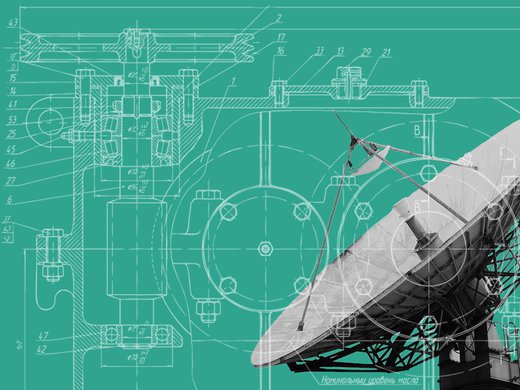The impact of digital technologies on contemporary economic and social development has been nothing short of revolutionary. The rise of the internet has transformed the way we share content, buy and sell goods, and manage our institutions. But while the hope of the internet has been its capacity to expand human connection and bring people together, the reality has often been something else entirely.
When social media networks first emerged about a decade ago, they were hailed as “technologies of liberation” with the capacity to spread democracy. While these social networks have undeniably democratized access to information, they have also helped to stimulate social and political fragmentation, eroding the discursive fibres that hold democracies together.
Prior to the internet, news and media were the domain of professional journalists, overseen by powerful experts, and shaped by gatekeepers. However, in the age of the internet, platforms circumvent the need for gatekeepers altogether. Bypassing the centralized distribution channels that have served as a foundation to mass industrial societies, social networks have begun reshaping the way democratic societies build consensus. Given the importance of discourse to democratic self-government, concern is growing that democracy is failing.
Democratic Malaise
While declining faith in democracy has been particularly highlighted in the United States, political distrust is becoming a significant concern for democracies around the world. In the European Union, for example, Eurobarometer surveys have shown varying degrees of trust in national governments and their Parliaments. According to a 2020 survey by Pew Research, some two-thirds of the adult population in France and half of the adult population in Britain believe their political system needs major changes or should be completely reformed.
Much of this growing “democratic malaise” overlaps government capture. Economic inequality has surged across many Western democracies over the past four decades, resulting in political apathy and speculation that “democracy is dying.” In the United States, the total share of wealth held by the top one percent of income earners has increased from around 22 percent in the 1980s to more than 30 percent today. Likewise, in Europe, income inequality has risen significantly — particularly across Southern Europe where youth unemployment is now approaching 30 percent.
What is becoming obvious is that power structures within internet-mediated societies are decentralizing — redistributing power from centralized bureaucracies onto laterally scaling networks. More to the point, the rise of social networks is amplifying growing distrust in democratic institutions. In fact, many now believe that these changes signal a new era in government. But what kind?
Much of this growing turmoil is the result of poor design. In an effort to attract advertisers, social media platforms have turned data — especially personal data — into a for-profit industry.
The Rise of Networks
Given their capacity for exponential scale, social networks appear to be making our problems much worse. Rather than a medium for “collective intelligence,” the internet is now awash with misinformation and conspiracy-laden propaganda. To be sure, even as social media has helped expose the bias and chauvinism present in mainstream institutions, social networks are making responsible decision making increasingly impossible.
Much of this growing turmoil is the result of poor design. In an effort to attract advertisers, social media platforms have turned data — especially personal data — into a for-profit industry. Capitalizing on the “attention economy,” platform companies have leveraged high-impact emotion to drive high-impact advertising revenue. Unfortunately, the dynamic feedback loops that networks enable have begun accelerating social disintegration.
All of this begs the question: is this the end of mass democracy or simply the beginning of a new era in networked collaboration? Perhaps it’s both. In the age of digital connectivity, the concept of democracy may be evolving from a conventional dependence on hierarchical structures into what could be called “network democracy.” Leveraging networked systems to distribute political power and decision making among citizens, networks likely represent the future of democracy.
Notwithstanding the damage done by social media platforms, networks have already permanently altered the nature of human social organization. This shift mirrors a transformation from the ranked authority of the “tower” — often the symbol of centralized power — to the exponential scaling of the network. How these tools are used and the systems into which they are embedded could determine the future of government.
Fortunately, several democracies have already begun experimenting with new tools for augmenting government. Hailed as the world’s most advanced digital nation, Estonia has been integrating digital solutions into its government for decades. This integration includes an e-Residency program, digital identification cards, online voting, access to health records, and a plethora of government services. In Singapore, the government has incorporated the Singpass system, digitizing various public services, and Myinfo, enabling Singaporeans to manage their personal data. In Spain, the city of Madrid has experimented with “Decide Madrid,” enabling citizens to propose, debate and vote on municipal issues and legislation.
Of course, technology is a double-edged sword. Given the unlimited reach of digital networks, network democracy will likely bring enormous new problems with regard to data security, disinformation and cybercrime. However, to the extent that technology might amplify democratic discourse and nurture citizen participation, it could help to heal the social divides that now plague democracies.
Whether technology amplifies democracy or simply destabilizes it will largely depend on the capacity of citizens to work together for the common good. Indeed, where democracies have come to depend on elected representatives for decision making, network democracy will increasingly shift power onto more direct forms of social cooperation. Much as technology has already eliminated intermediaries across various industries, it will eventually eliminate barriers that distance citizens from the democratic process itself.



